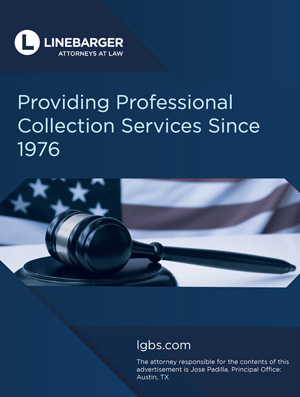Find Your Voice
When I first started as a court administrator, I had zero experience with the judicial or legal systems. There was a point where I received a traffic ticket, but I paid it right away and never needed to step foot in a courtroom. My court knowledge was limited to whatever I had seen on TV or had learned in civics class. As we know, what you learn on television is a far cry from what actually occurs within the judicial system, so my knowledge was lackluster, to say the least.
In all honesty, I fell into this position because I saw a correlation between my social work background and this role. I could see a way to use my experience in policy creation, program management, and dealing with people. Before working in the court, I had worked in health care and higher education. I was used to dealing with difficult people, putting out last-minute fires, coordinating presentations on the fly, and, in general, keeping everything (and everyone) moving forward. The most challenging job I held was working for the Employee Assistance Program of a large university hospital, where we’d deal with trauma from inpatient to outpatient to campus-related issues. If there were natural disasters within the United States, staff from the health system would often be deployed to those areas. After Hurricane Katrina, a large contingent went to assist in evacuations, providing health services to those who were in shelters and helping rebuild. Those who went often came back with horrific stories about what they witnessed. My office would provide debriefing services and do what we could to normalize their lives.
Often, the defendants I interact with daily are trying to normalize their lives as well. When I first started in my position, I did not realize how many similarities existed between my prior positions and this one. I hear many attitudes from court employees that the defendants in their courtrooms are criminals, and they treat them as such. Over the past four years or so, I have had the pleasure of teaching court-basics courses to Colorado municipal court administrators and clerks. I hear the stories of defendants coming in with brand new phones stating they are unable to pay their court fines, and how the court staff feel that if they can afford that phone, they can pay their fine. What if someone else is providing that phone for the defendant? What if that’s the only phone or only way they have to communicate? Not everyone owns a tablet, laptop, or desktop and not everyone can make it to the library during their open hours to use a computer there.
Throughout my life, I’ve had to make hard decisions about what was necessary to live, and that was just for myself. If a defendant has a child to care for, my guess is the majority of their funds are going to provide for that child. If you live on a fixed income, it can be exceptionally stressful to come up with money above and beyond what you already have budgeted. Recently, I had a defendant in court who had damaged a treadmill at our recreation center. The judge ordered him to pay for a new treadmill, as the damage was extensive enough to not be repairable. That cost is over $1,000, and the defendant asked for a year to be able to pay that back. The judge did not grant that request and suggested the defendant obtain another job to be able to pay his fines and fees in a timely manner. While this appears to be a great solution, the judge does not necessarily know the defendant’s current workload. When I was the same age as this defendant, I was working a full-time job and two part-time jobs in hopes of making payments toward my student loans, as well as paying for rent and groceries. I was fortunate enough, at that time, that my parents were paying my car insurance, since I was “borrowing” the car I was driving. Another job would not have been an option for me, as there wasn’t a whole lot of free time. Now, I do know that if this defendant makes an honest attempt at paying fines and fees, and asks for an extension to pay the remainder due, the judge will grant it. However, I can also empathize with how he felt when he left court that day.
As Early Career Professionals (ECPs), we can choose which way we want to perceive the situations we encounter daily. Often, as someone spends more time within a certain role, they begin to experience burnout, frustration, and overall malaise. This can lead them to be a bit more cynical than the average employee, but it can also lead to negative judgment calls and interactions. As ECPs, we need to make certain that we do express our thoughts on situations. While it is often easy to go with the status quo, I believe it’s more important that we portray procedural justice. Use your voice to express concerns with anything you may see, speak with your supervisor, speak with your judge, speak with your prosecutor, just speak with someone who can help you with the situation and come to a valuable conclusion.
Our roles within the judicial system are to ensure that every person who walks through our doors receives the same treatment, regardless of their situation. The NACM Annual Conference theme is “Courts and Society: Creating Public Trust through Engagement and Innovation.” Community policing follows the four pillars of procedural justice: “being fair in processes, being transparent in actions, providing opportunity for voice, and being impartial in decision making.” Similarly, courts should strive to follow similar pillars. We want to be fair, transparent, and impartial, and we want to make sure defendants feel heard.
In my experience, albeit limited, court employees who have become jaded/hardened by their experiences stop hearing defendants. A feeling of “I’ve heard it all before” takes over their psyches to the point that defendants often leave the situation with a bitter experience. As newer court employees, I feel it is our duty to be aware of these situations and interject as we see fit. This could be as simple as reaching out to the defendant after the interaction, expressing concern toward the employee who had the interaction, or offering assistance while the interaction is occurring. It is not an easy endeavor. The situation can be uncomfortable because we’re the new kid on the block, but it can be life changing.
When I started in this role, there was a particular defendant that had been labeled problematic. I was cautioned about this person. He had a tendency to be somewhat volatile with staff, wouldn’t listen to judge’s orders, and was somewhat belligerent. My co-workers, at that time, had heard this particular defendant had moved out of town, but wanted to inform me, just in case. Within a year, he was back in my court with a public-consumption charge. When he appeared for court, I could tell he was worked up and upset about having to be there. He was cursing under his breath and using some choice words to describe the prior court administrator and the judge. He stopped by my office before entering chambers and explained how nobody ever listens to his side of the story and how much he hated the guy that was normally in my office. I listened to him and told him that I was the new court administrator and would do my best to assist him. As he walked away, I could hear him comment that everything was different and maybe it’d be better. As time went by, he would often stop by the court office to talk with me, ask for payment extensions, and see how his cases fared. He would also tell me the various things going on in his life and thank me for listening when he’d leave. He admitted to me one day that I was the only person in town that seemed to actually hear him and he appreciated it. However, there were still those in the building who felt he was a threat and wouldn’t speak to him. They’d dismiss him until I’d arrive in the office and I’d have to spend some time getting him calmed down to be able to speak with him about his concerns.
At one point, he was paying $1.00 a month toward two court cases that totaled over $200 combined. He called me one day asking what would happen if he was not able to pay that $1. The court administrator before me would recommend to the judge that he issue a bench warrant for failure to pay his fines. In 2016 this was deemed inappropriate by the Colorado legislature, and municipal courts were no longer able to issue warrants for failure to pay fines or fees. I informed him that, if he were unable to pay, the judge would order his fines sent to collections. He thanked me for my honesty and said that he, most likely, would not be able to make his payment that month and apologized.
Similarly, I had another defendant that would come to court and yell. He’d yell at the prosecutor, yell at the judge, and yell at me. I would calmly listen to his concerns and do what I could to assist him. A couple months later, he stopped into court to apologize. While dealing with his court issues, he was in excruciating pain from a bad hip. Once he got the hip replaced, he was no longer in pain and realized he hadn’t been very civil to us. He told me that he appreciated the fact that I never retaliated toward him and would listen to his concerns. I thanked him for apologizing and told him that I was glad I could help him.
Granted, every defendant is not going to be self-aware enough to realize how they are treating others. And there are those who are used to yelling and screaming to get their way—often effective when people want to get them out of their face. I think, however, that the ultimate thing is to keep a defendant’s dignity intact. At my court level, their appearance is often the very first time they have ever been in a courtroom. They don’t know what to expect, they don’t know how to act, and they’re apprehensive about the whole process. There is no cost in being kind to one another, realizing that we all have issues we are dealing with daily and ensuring that we end our day with a feeling of dignity and respect.
Even if you are new to your role or your field, to remain silent is to condone what is occurring. Speak up, listen, and respect one another every day. There will always be those whose behavior is not the best. But, unless you are the judge, it isn’t your place to put judgment on someone else, their situation, or their demeanor.
“Treat everyone with politeness and kindness, not because they are nice, but because you are.”
– Roy T. Bennett, The Light in the Heart
ABOUT THE AUTHOR
Angie VanSchoick is court administrator for the Breckenridge Municipal Court in Colorado.



